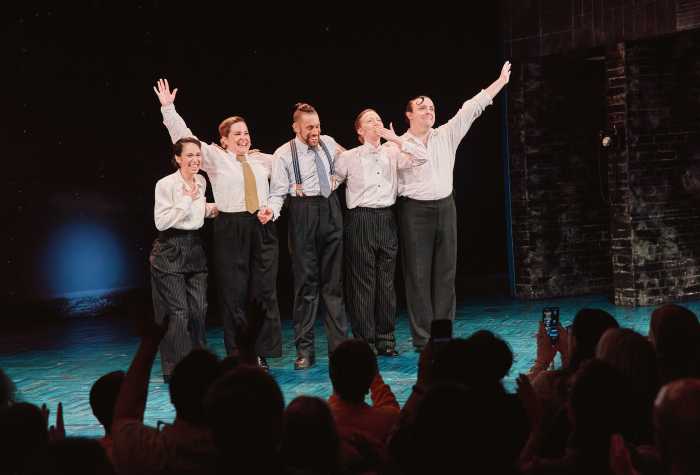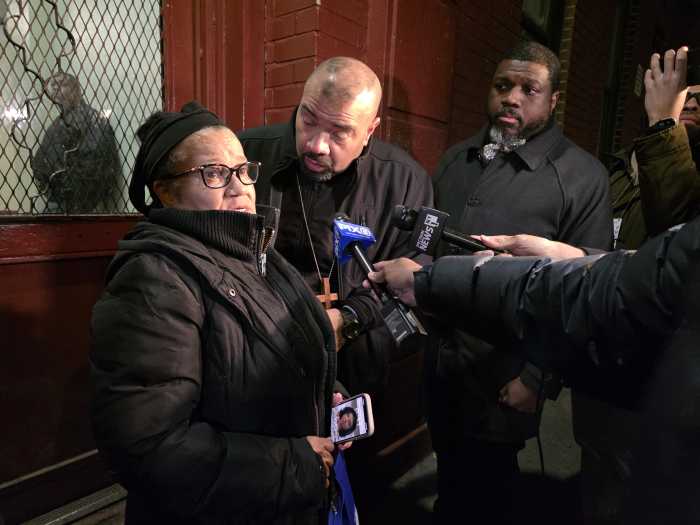‘The Ferryman’ plays an open run at the Bernard B. Jacobs Theatre. 242 W. 45th St., theferrymanbroadway.com.
When it comes to theatrical flair, Jez Butterworth’s explosive “The Ferryman” has pretty much got it all.
Within its three hour-plus running time, the stage plays host to a 30-plus member cast (including adorable children and animals) and Irish traditions, as themes of family tension, sexual heat, divisive politics and betrayal come to climax in an unsparing finale.
“The Ferryman” marks Butterworth’s third play on Broadway, following “Jerusalem” (with Mark Rylance) and “The River” (with Hugh Jackman). Masterfully directed by Oscar-winner Sam Mendes, the production premiered at London’s Royal Court Theatre and quickly transferred to the West End.
Set in Northern Ireland circa 1981, the play begins with a short prologue in a back alley in which a menacing Irish Republican Army leader (Stuart Graham) reveals to a quavering priest (Charles Dale) that the body of Seamus Carney — a suspected IRA informant who disappeared a decade ago — has finally been found in a bog.
The remainder of the play is set at the rural farmhouse of Seamus’ brother Quinn (Paddy Considine), who deserted the IRA right before his brother’s disappearance. He now lives on the farm with his frail wife Mary (Genevieve O’Reilly) and their seven children, along with Seamus’ pent-up wife Caitlin (Laura Donnelly) and troubled son Oisin (Rob Malone).
They are also joined by extended family, including the disconnected but clairvoyant Aunt Maggie Far Away(Fionnula Flanagan) and the bitter Aunt Patricia (Dearbhla Molloy).
It is the time for the family’s annual harvest and several cousins have come to lend a hand, including the danger-seeking 17-year-old Shane (Tom Glynn-Carney), who has already become involved with IRA activities. Glynn-Carney offers a mesmerizing performance, as he recklessly brags to his relatives and soaks up violent ideals.
The discovery of Seamus’ body casts a grim shadow upon the feast, with IRA members showing up to seek Quinn’s assurance that he will not publicly accuse the group of murdering his brother. It also forces Quinn and Caitlin to acknowledge their long-repressed feelings for each other.
In lesser hands, “The Ferryman” may have come off as pure hokum, but Mendes makes it absolutely entrancing, bringing out many intense, full-bodied performances, particularly from Donnelly, who brilliantly conveys Caitlin’s raw vitality, vulnerability and stifled rage. Other key performances come from Flanagan, who offers an otherworldly, haunted presence and Considine, who gives the impression of a man walking a fine line between his past and present, burdened by guilt, bound to crack.
“The Ferryman” is certainly reminiscent of “August: Osage County,” another long-winded family melodrama that managed to pack a powerful punch. Many other plays are opening on Broadway this fall, but they are unlikely to match the excitement and finely-tuned ensemble acting of “The Ferryman.”



































